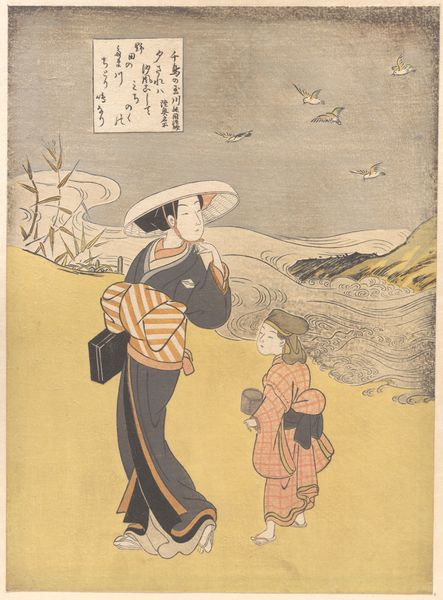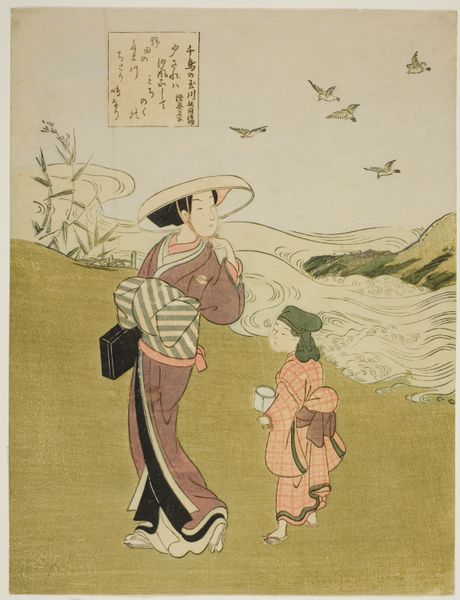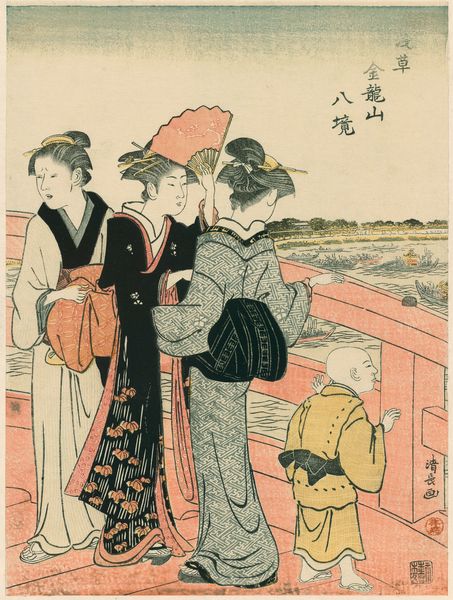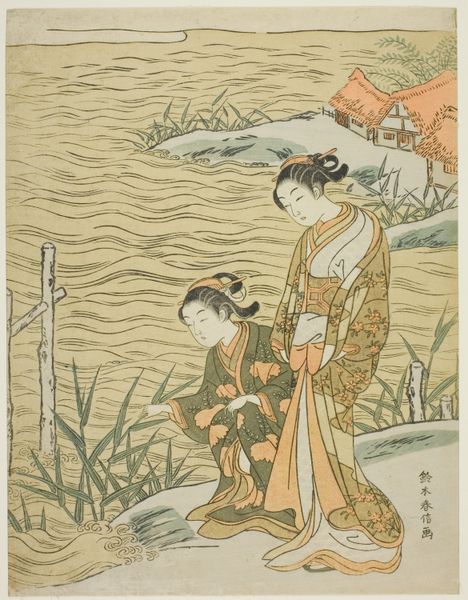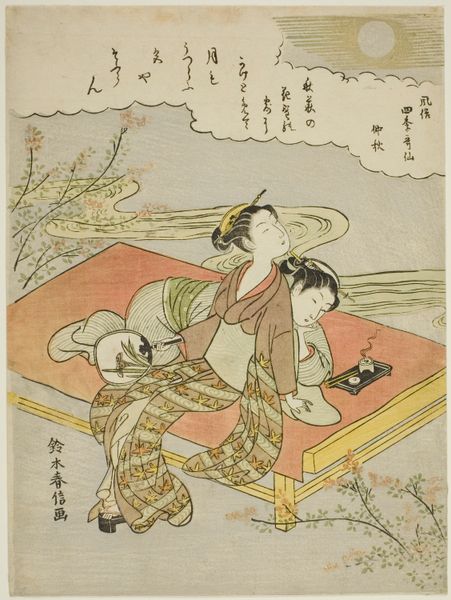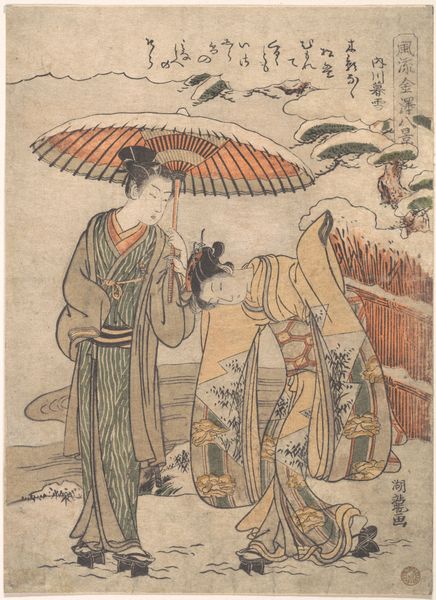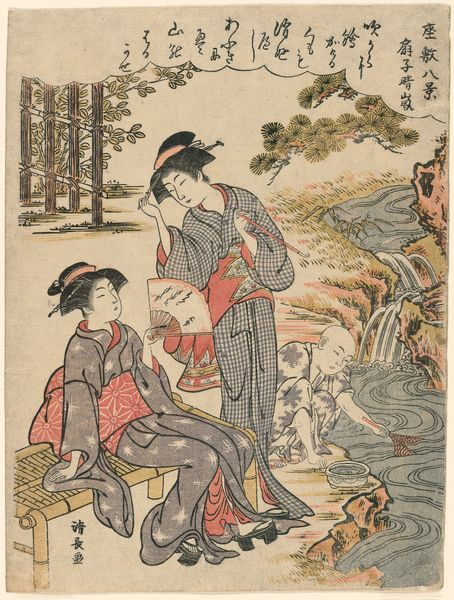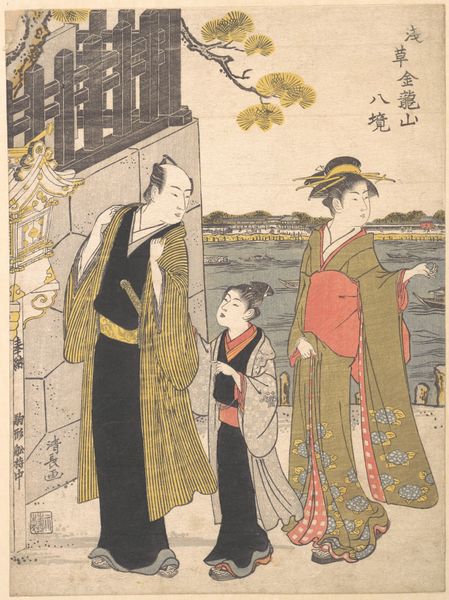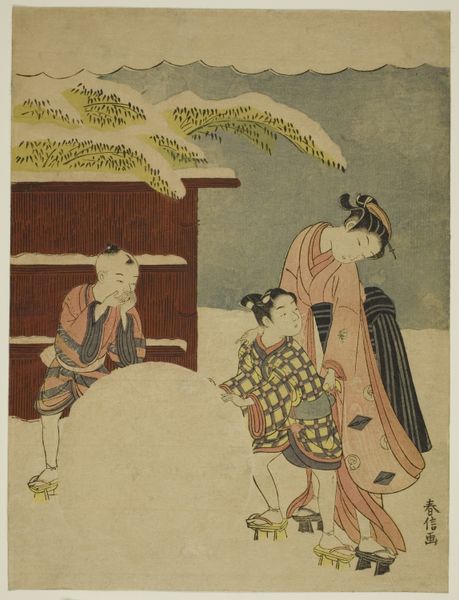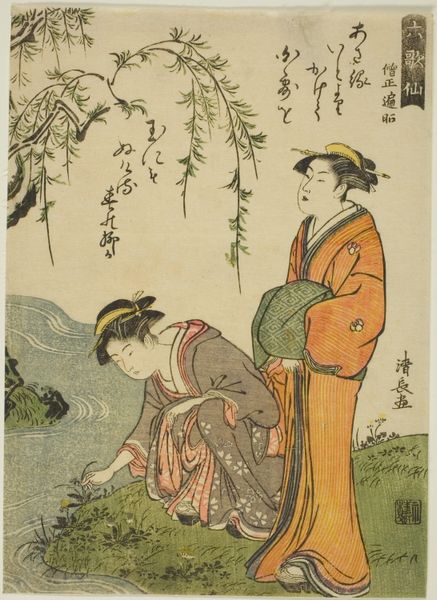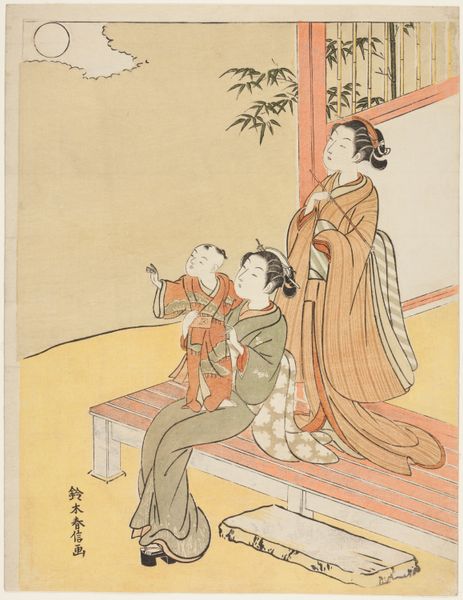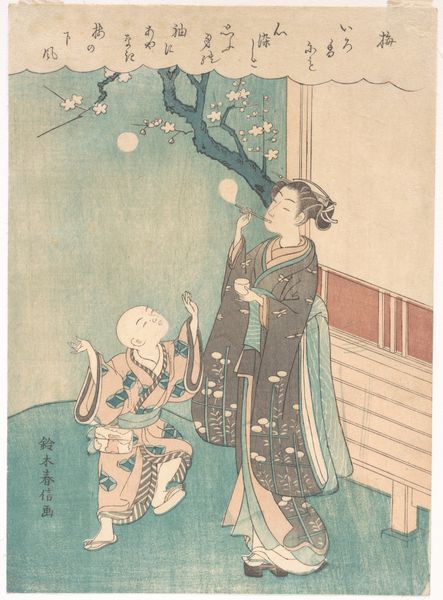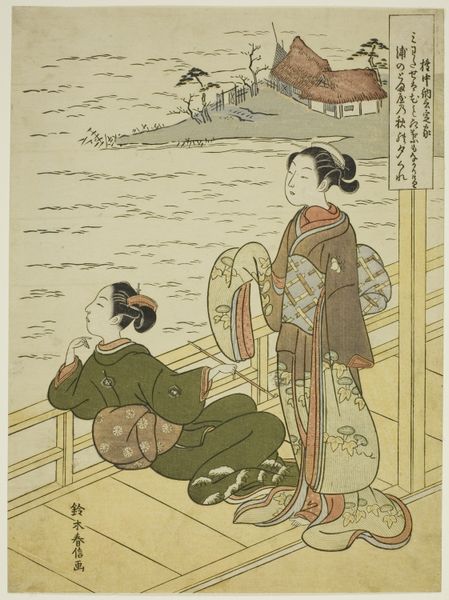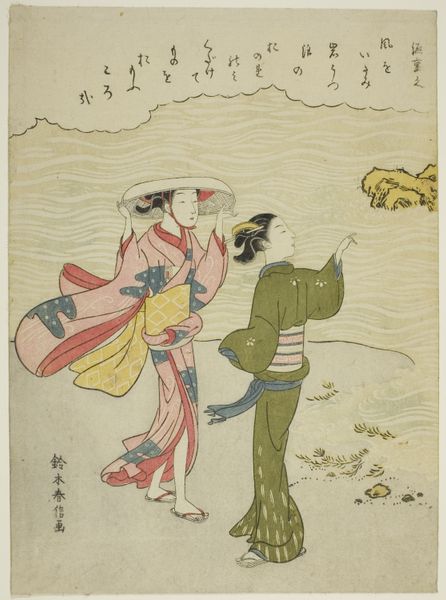
“The Jewel River of Plovers, a Famous Place in Mutsu Province,” from the series Six Jewel Rivers (Mu Tamagawa: Chidori no Tamagawa, Mutsu meisho) 1725 - 1770
0:00
0:00
#
imaginative character sketch
#
quirky illustration
# print
#
asian-art
#
bird
#
river
#
japan
#
cartoon sketch
#
personal sketchbook
#
child
#
men
#
sketchbook drawing
#
character design for animation
#
watercolour illustration
#
storyboard and sketchbook work
#
cartoon carciture
#
sketchbook art
Dimensions: 10 13/16 x 7 13/16 in. (27.5 x 19.8 cm)
Copyright: Public Domain
Editor: So, this is "The Jewel River of Plovers, a Famous Place in Mutsu Province," a woodblock print by Suzuki Harunobu, sometime between 1725 and 1770. It feels quite serene, with those delicate lines and soft colors. The birds flying overhead really set a tranquil mood. What catches your eye about this piece? Curator: The birds themselves are potent symbols. In Japanese art, plovers often represent the fleeting nature of life and the changing seasons, especially autumn. They speak of travel and transition. Notice how the figures – the elegant woman and the child – are positioned in relation to the river and the birds. It creates a layered visual narrative, wouldn't you agree? Editor: Definitely. It's like they're part of a larger journey. Do the woman and child represent something more than just figures in a landscape? Curator: Consider the ‘Jewel River’ itself, part of a series Harunobu created. Rivers often symbolize the passage of time and the continuous flow of life. Furthermore, consider who is viewing this image; the symbols serve to stimulate memory and cultivate mindfulness. Does that suggest an understanding to you about the potential intention of the piece? Editor: It’s all about this continuous flow and reflection. It gives such resonance to a quiet scene. Curator: Exactly. And this speaks to the incredible power of images. Harunobu uses deceptively simple visual language to convey a profound understanding of the world and our place within it. Each bird, each ripple in the water, works together. Editor: I never considered how layered the imagery really is. I was focusing on the overall aesthetic! Curator: It's precisely that aesthetic harmony that makes these deeper symbolic meanings so effective! Art encourages looking again. Editor: Thanks! This has really given me a deeper understanding of the rich symbolism embedded in this print.
Comments
No comments
Be the first to comment and join the conversation on the ultimate creative platform.
